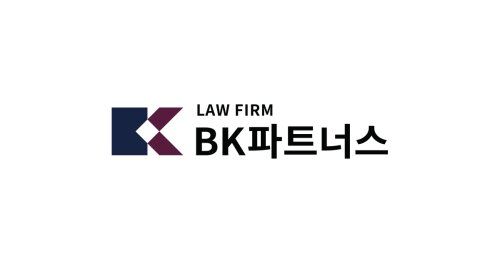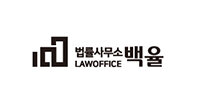Best Discrimination Lawyers in Seo-gu
Share your needs with us, get contacted by law firms.
Free. Takes 2 min.
List of the best lawyers in Seo-gu, South Korea
About Discrimination Law in Seo-gu, South Korea
Discrimination refers to the unfair or prejudicial treatment of individuals or groups based on characteristics like race, gender, age, disability, religion, or other protected categories. In Seo-gu, a district within Incheon Metropolitan City, the South Korean legal system enforces anti-discrimination laws that aim to promote equality and protect citizens from unjust treatment in various contexts, such as the workplace, schools, housing, and public facilities. While national laws set the foundation, local policies and organizations in Seo-gu actively work toward awareness, prevention, and resolution of discriminatory acts.
Why You May Need a Lawyer
Navigating discrimination issues can be complex, especially when trying to determine whether a specific act or policy is unlawful. People in Seo-gu may require legal help in cases such as:
- Facing unfair treatment or harassment at work due to gender, disability, age, or other personal characteristics.
- Being denied access to services, education, or housing for prejudicial reasons.
- Experiencing discriminatory recruitment, promotion, or termination.
- Believing you were treated differently at government offices or public spaces due to your background or appearance.
- Seeking compensation or corrective action after being subjected to verbal, physical, or psychological abuse linked to discrimination.
A lawyer can provide advice on your rights, assist with gathering evidence, represent you in negotiations or court, and help you understand potential outcomes or remedies under South Korean law.
Local Laws Overview
Seo-gu follows the national framework set by key statutes like the National Human Rights Commission Act and the Equal Employment Opportunity and Work-Family Balance Assistance Act. While South Korea does not yet have a comprehensive anti-discrimination statute that covers all scenarios, there are laws addressing gender discrimination, labor rights, and certain aspects of disability and age discrimination. Local governments, including Seo-gu and Incheon City, have also enacted ordinances and established human rights commissions to raise awareness and support residents dealing with discrimination.
Victims of discrimination may file complaints with the National Human Rights Commission of Korea (NHRCK) or pursue remedies through the local labor office, the court system, or specialized ombudsman offices. Proceedings can be legal, administrative, or mediation-based, depending on the case.
Frequently Asked Questions
What types of discrimination are prohibited in Seo-gu?
Unlawful discrimination in Seo-gu is prohibited based on factors such as sex, disability, age, nationality, ethnic background, religion, marital status, pregnancy, and in some contexts, sexual orientation. Different laws may apply depending on the setting, such as employment, education, or access to goods and services.
Can I file a complaint anonymously?
Complaints to the National Human Rights Commission of Korea can generally be filed confidentially, but full anonymity may not always be possible during investigation. Legal cases in court typically require disclosure of your identity.
What evidence do I need to prove discrimination?
Useful evidence includes emails, messages, official notices, witness statements, employer policies, or any other documentation that demonstrates unfair treatment or disparate impact. A lawyer can help you assess and organize evidence.
How quickly must I act after experiencing discrimination?
It is important to act as soon as possible. Different agencies and courts set time limits, often between 90 days and 1 year from the date of the discriminatory act. Prompt action preserves your legal options.
What remedies are available if I win my case?
Possible outcomes include compensation for damages, reinstatement of employment, orders to cease discriminatory practices, policy changes, and, in some cases, public apologies.
Is sexual harassment considered discrimination under Korean law?
Yes, sexual harassment is recognized as a form of gender discrimination and is prohibited in workplaces and many public settings under South Korean law.
Can foreigners or migrant workers get legal protection against discrimination?
Yes, foreigners and migrant workers in Seo-gu are protected by the same anti-discrimination provisions as citizens, especially regarding employment, public services, and access to education.
What if the discrimination happened at a private business?
Discriminatory acts by private businesses such as shops, restaurants, or employers may also be subject to local and national anti-discrimination laws. Victims can file complaints with rights commissions or pursue civil actions.
Do schools have special obligations to prevent discrimination?
Yes, educational institutions must take steps to prevent and address discrimination among students and staff. Complaints can be directed to school administrators or the education office.
How can I find a qualified lawyer in Seo-gu?
You can contact local bar associations, the Incheon Branch of the Korean Bar Association, or seek recommendations from rights organizations. Many offer lists of attorneys who specialize in discrimination cases.
Additional Resources
Individuals seeking support or more information about discrimination in Seo-gu can consider the following organizations and resources:
- National Human Rights Commission of Korea (NHRCK): Handles human rights complaints, offers education and advocacy.
- Incheon City Human Rights Center: Provides consultation services and information for citizens of Seo-gu.
- Seo-gu District Office: Resident counseling services for administrative or social issues, including discrimination.
- Korean Bar Association (Incheon Branch): Referrals to qualified local lawyers and legal clinics.
- Ministry of Employment and Labor: Support for workplace discrimination and labor rights issues.
- Korea Legal Aid Corporation: Free or subsidized legal services for qualifying individuals.
Next Steps
If you believe you have experienced discrimination in Seo-gu, South Korea, consider taking these steps:
- Document the incident, collecting all relevant evidence and noting dates, times, locations, and any witnesses.
- Consult a legal professional or support organization to discuss your case and explore your options.
- File a complaint with the National Human Rights Commission of Korea or a relevant government agency if appropriate.
- If needed, initiate mediation or court proceedings with help from your lawyer.
- Stay informed on your rights and remain proactive in pursuing remedies or corrective actions.
Remember, seeking legal advice early is crucial to protect your rights and ensure the best possible outcome.
Lawzana helps you find the best lawyers and law firms in Seo-gu through a curated and pre-screened list of qualified legal professionals. Our platform offers rankings and detailed profiles of attorneys and law firms, allowing you to compare based on practice areas, including Discrimination, experience, and client feedback.
Each profile includes a description of the firm's areas of practice, client reviews, team members and partners, year of establishment, spoken languages, office locations, contact information, social media presence, and any published articles or resources. Most firms on our platform speak English and are experienced in both local and international legal matters.
Get a quote from top-rated law firms in Seo-gu, South Korea — quickly, securely, and without unnecessary hassle.
Disclaimer:
The information provided on this page is for general informational purposes only and does not constitute legal advice. While we strive to ensure the accuracy and relevance of the content, legal information may change over time, and interpretations of the law can vary. You should always consult with a qualified legal professional for advice specific to your situation.
We disclaim all liability for actions taken or not taken based on the content of this page. If you believe any information is incorrect or outdated, please contact us, and we will review and update it where appropriate.









